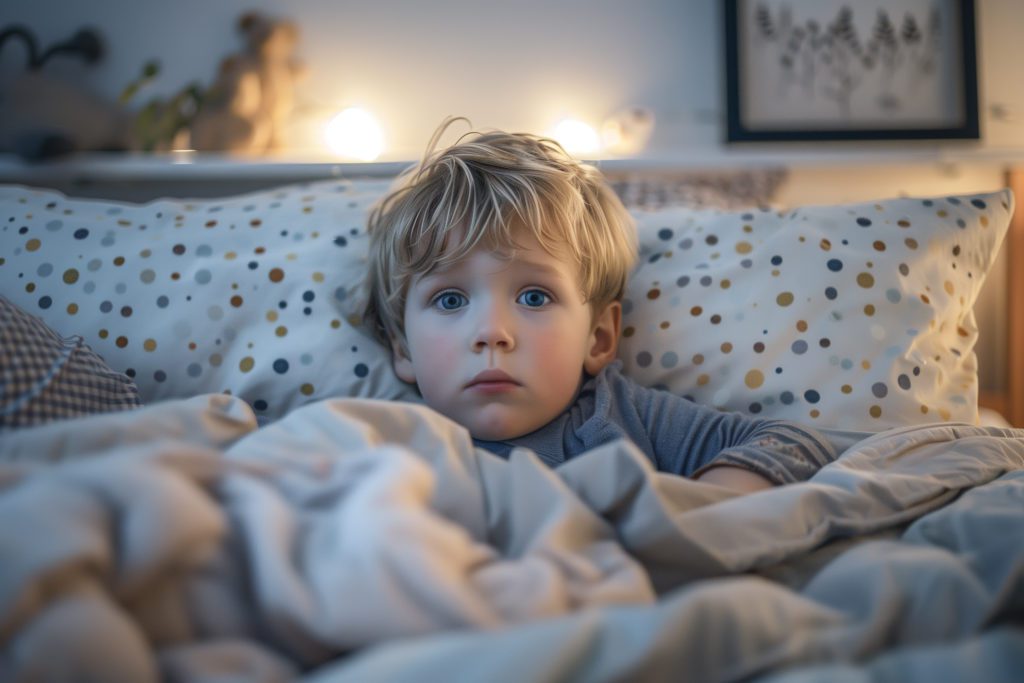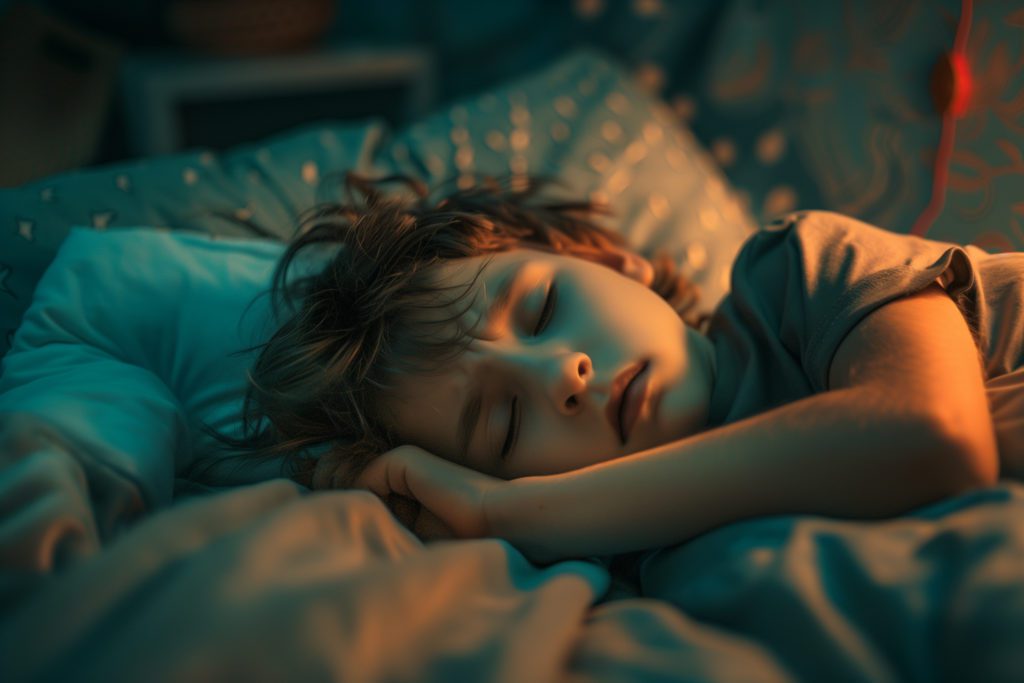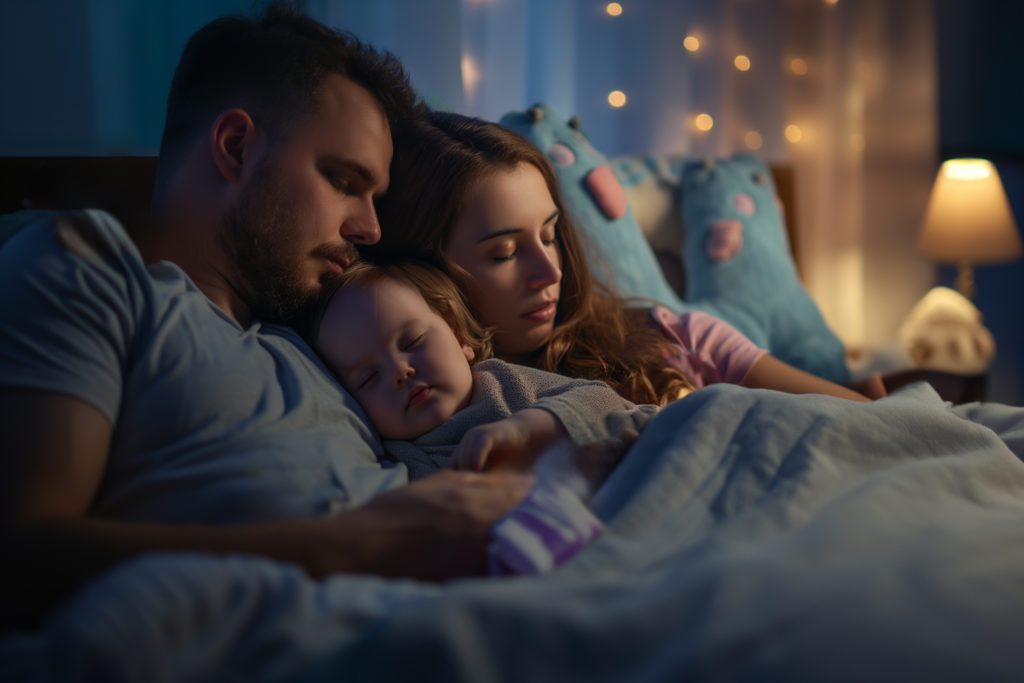
Parental Sleep Anxiety: Dealing with the Fear of Your Child’s Sleep Issue
Childhood sleep disorders can be common, which can cause anxiety in parents. However, there are steps that parents can take to work through this fear.

Those of all ages can face challenges with their sleep, and children are no different. Some sleep issues are even considered common in children, such as nightmares or sleepwalking, but that doesn’t make it any less stressful when it’s your child struggling to sleep soundly through the night.
Adding to these concerns is the fact that some sleep disorders affecting children can become dangerous health concerns. They also commonly cause sleep deprivation, which may bleed into your child’s day, affecting their mood and academic performance.
Sometimes, the scariest thing about your child having a sleep disorder is feeling as though you’re unsure of what to do—no one likes to feel helpless, especially when it comes to their children. However, there are key steps you can take to help both you and your child sleep better.
Common Childhood Sleep Disorders
While certain sleep disorders are prevalent in both kids and adults, some childhood behavioral patterns can lead to specific sleep-related disorders.
The most common childhood sleep disorders include:
- Insomnia. 5% to 20% of children suffer from an inability to fall asleep and/or stay asleep. The most common reason for insomnia in children is a resistance to sleep, frequent nighttime wakings, or taking a long time to fall asleep.
- Sleepwalking. This disorder involves walking or engaging in other activities while asleep and is more common in children than adults.
- Obstructive sleep apnea. This disorder, characterized by episodes of stopped breathing, affects around 1% to 5% of children, and it may be because of obesity, enlarged tonsils, or certain dental conditions.
- Night terrors. With this parasomnia, the sleeper awakens frightened and panicked but has no memory of the event causing these feelings. While rare in adults, around 30% of children experience night terrors.
- Bruxism. Also called teeth grinding, bruxism can be caused by many factors, although stress seems to be a significant one.
- Restless legs syndrome. This movement disorder affects 2 to 4% of children, although it remains largely underdiagnosed in children.
How To Deal With Parental Sleep Anxiety
When your child has a sleep issue, it’s natural for your stress levels to rise with all the unknowns: How will it affect their well-being? Is it dangerous? Will it ever go away, or is it permanent?
These questions can haunt your days and nights, making it hard for you to sleep as well, and the less sleep you have, the more stressed you’ll feel the next day. Studies have shown that when a child has a sleep disorder, their parents are 111% more likely to suffer from insomnia and see a 90% greater rate of stress.
When the stressful thoughts spiral, work your way through these steps, and you’ll soon feel as though you have more control over the situation.
Educate Yourself
When your child has a sleep disorder, the greatest thing that you can do is educate yourself on the sleep disorder so that you can better understand what is going on.
For example, looking into night terrors will offer the reassurance that your child experiences no long-term effects from the episodes, even if they may be immensely frightened in the moment. Learning about the symptoms of bruxism can show that stress is often the cause, which can offer guidance on how to help your child.
Furthermore, understanding the sleep disorder can help you limit any negative consequences. Children who sleepwalk can end up being a hazard to themselves and others depending on the complex activities they complete while asleep; parents may even be concerned about them wandering out of the house. Knowing this, parents can take the necessary precautions to ensure their child remains safe even when they are sleepwalking.
Often, our fears can stem from not knowing, so by talking to your child’s pediatrician to better understand the sleep issues they have, you can feel better about what your role in managing your child’s sleep issue should be.
Improve Your Family’s Sleep Hygiene
Sleep disorders, even if they only affect one person in your family, can be felt by everyone. To combat this, it’s best to improve the sleep hygiene of everyone in your family—it may even help your child go through the night without an episode.
Some ways to improve your family’s sleep hygiene include:
- Setting a consistent bedtime
- Following the same bedtime routine each night
- Keeping the bedtime routine relaxing, not stimulating—opt for reading, taking a bath, or listening to soothing music instead of watching TV or playing video games.
- Optimize your sleep environments by making them dark, cool, and quiet.
- Prioritize daily physical activity; you can even turn this into a family event!
Reduce Stress Levels All-Around
Many sleep disorders in children are related to stress, and when your child doesn’t sleep well, you will undoubtedly feel the stress as well.
To combat this, implement family practices to reduce stress levels, such as mindfulness meditation techniques, family bonding, or engaging in artistic activities such as drawing and painting.
Additionally, you can help reduce your and your child’s stress levels associated with the sleep disorder simply by talking to them about it and letting them voice their concerns. Sometimes, all it takes to reduce their stress is to discuss what they’re worried about and see what solutions you can come up with together.
Be Available To Offer Comfort
Depending on the sleep issue, your child may want someone there to comfort them afterward.
For example, while your child may not remember what caused their night terror, they can still benefit from the reassurance that they are safe now. Similarly, if your child suffers from nightmares, you can help them work through their dream and reassure them that what happened was only a dream; it wasn’t real.
By being there for your child, you can sleep easier knowing that, should they need comfort, they’ll come to you.
Ultimately, whatever you can do to help ease your and your child’s mind during this time will help you both through the night. Parental sleep anxiety is normal, especially when your child has a sleep disorder, but understanding what is happening and what causes it can allow you to modify your child’s lifestyle in a way that protects what is immensely important: their sleep.

Written by
Jessica G
Medical writer freelancer who has written hundreds of articles on varying topics. Masters of Engineering degree in Biomedical Engineering.
Download Pillow
Get help
Press & News
Legal
Connect
X (Twitter)
Company
Copyright © Neybox Digital Ltd.



